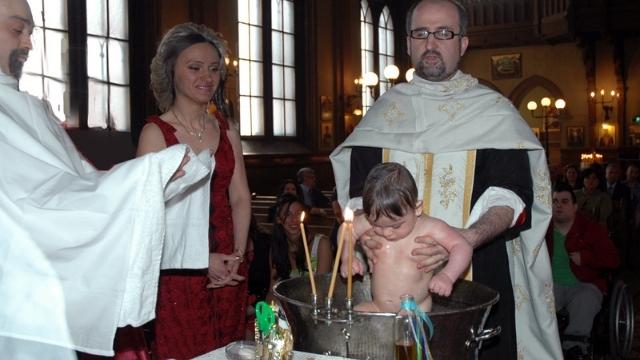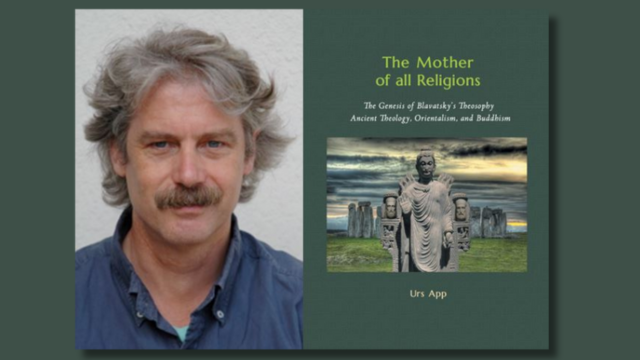Opponents argue that “even children” are disfellowshipped. They call 17-year-olds “children” too, and turn a rare (but understandable) occurrence into a major issue.
by Massimo Introvigne
Article 4 of 6. Read article 1, article 2, article 3, article 4, article 5, and article 6.

Opponents of the Jehovah’s Witnesses often tell stories where members of the organization are disfellowshipped and shunned all of a sudden. Then, they reveal features of the Jehovah’s Witnesses that allegedly had been carefully hidden before. What looked like a loving and caring community now appears harsh and disciplinarian. Horrific stories are included of “children” that are disfellowshipped and then shunned by parents and siblings in their own homes. As we will see, these stories are not true, although there are rare cases of minors who are disfellowshipped (but certainly not shunned at home).
Apostates and anti-cultists have their own agenda, but the reality is often quite different. Those who join the Jehovah’s Witnesses know beforehand that if they unrepentantly commit serious offenses they will risk being disfellowshipped. They know that shunning is a consequence of disfellowshipping. By no means is this part of the internal rules hidden to potential converts. In the previous article of this series, I have explained how shunning works by quoting publications of the Jehovah’s Witnesses publicly available on the official website jw.org, which those who consider joining the organization are encouraged to access.
One does not become a Jehovah’s Witness overnight. While some new religions and movements have been accused of accepting new members after they have attended one meeting only, or even after a short interaction with a minister at a street stall, these accusations would not be valid if directed at the Jehovah’s Witnesses. On the contrary, they warn against rushing to be baptized, although when one is ready baptism should not be delayed either. We read for example in The Watchtower, study edition, for March 2018, that before candidates “can get baptized, they must learn the truth about God, his purpose for humans and the earth, and what he did to save mankind. (1 Timothy 2:3-6) Then they need to develop faith, which will help them to obey God’s laws and to stop doing what he hates. (Acts 3:19) This is important, because Jehovah will not accept the dedication of a person who keeps doing things that He hates. (1 Corinthians 6:9, 10) But there is more. Those who want to dedicate their life to Jehovah need to attend congregation meetings and regularly preach the good news and teach others. This is required of anyone who wants to follow Christ. (Acts 1:8).”
In practice, this means that before requesting baptism, candidates would have become “unbaptized publishers,” meaning that they were already participating in the public ministry for which Jehovah’s Witnesses are known and presenting their doctrines to others. Even before being accepted to participate with the congregation as “unbaptized publishers,” some assurance would need to be given by the individual that they understand, agree with, and are living according to basic Bible principles. When candidates seek baptism, they normally go through two one-hour sessions with the congregation’s elders, a sort of assessment where the elders make sure that those who ask to be baptized understand both the teachings and the practices of the Jehovah’s Witnesses. Only if the elders are satisfied that this is the case are the candidates baptized. What sins are considered serious, the possibility that unrepentant sinners will be disfellowshipped, and the consequent shunning, are among the basic teachings that candidates to baptism should know and understand.

Opponents have objected that, while this is true for those who join the Jehovah’s Witnesses as adults, it is not true for “children” who are born within the organization. This objection may impress audiences in countries where the majority Christian churches practice infant baptism, also called pedobaptism, i.e., baptize children as soon as possible after they are born. This is the case for Roman Catholics, Eastern Orthodox, and many Protestants, with the exclusion of the denominations issued from the so-called “Radical Reformation” (which was often “anabaptist,” meaning “without [infant] baptism”), Baptists, and some Pentecostals.
Since in many countries the majority of Christians regard infant baptism as a matter of course, they may not know or consider that Jehovah’s Witnesses do not practice it. Jehovah’s Witnesses are part of these minority Christian groups believing that those who practice pedobaptism misinterpret the Bible. On October 1, 2011, for example, The Watchtower discussed the issue, insisted that “Jesus did not teach that infants should be baptized,” and observed that “those who are baptized must be disciples of Jesus. That is, they are individuals who have learned about Jesus and have chosen to follow him—a choice that no infant, of course, can make.” There are dozens of other texts where the Jehovah’s Witnesses present their criticism of infant baptism.

Being born in a Jehovah’s Witnesses’ household, thus, does not mean that one is automatically regarded as a Jehovah’s Witnesses. Sons and daughters of Jehovah’s Witnesses parents who want to join the organization (not all do) follow the same path of every other candidate to baptism. The Watchtower, in its study edition of July 1, 2006, addressed itself directly to children of Jehovah’s Witnesses parents: “You young ones should understand that neither your parents nor the Christian elders in the congregation are going to force you to get baptized. The desire to serve Jehovah must come from you.”
Critics contend that they have occasionally met children as young as 10 who have been baptized. In my and other scholars’ observation of the Jehovah’s Witnesses this is not unheard of, but is comparatively rare. In modern societies, young people achieve maturity at different ages due to diverse circumstances prevailing in different areas of the world. The Jehovah’s Witnesses acknowledge this. The Watchtower, study edition, March 2018, stated that, “Of course, each child is unique; not all children become mature at the same rate or at the same point in life. Some have a good measure of mental and emotional maturity at a young age and express a desire to get baptized. Others may not be ready for baptism until they are a bit older. Thus, discerning parents do not pressure their children to get baptized.” The 2008 book “Questions Young People Ask—Answers That Work” addresses the question “Is there a certain age by which you should be baptized?” and answers as follows: “Age is not the primary factor. Still, you should be old enough—and mature enough—to understand the meaning of dedication.”
Contrary to what critics argue, that a minor may be mature enough to make choices implying important consequences is not a theory unique to the Jehovah’s Witnesses. In some countries, including the United States, England, and Wales, minors can be tried as adults in criminal courts for serious charges such as homicide and sexual assault, if the courts believe that their cognitive and moral capabilities were developed enough at the time of the crime.
The Roman Catholic Church practices infant baptism and does not require an understanding of the faith as a pre-requisite for being baptized, but it canonizes those who performed heroic moral and religious deeds as saints. Hundreds of minors have been canonized, even outside the special situation of martyrdom. As reported by the daily newspaper of the Italian Catholic Bishops, in 1981 the Vatican Congregation for the Causes of Saints indicated that at age 7 some minors may consciously decide whether to accept or reject God’s plan for them, and as a consequence may be considered for canonization. If they can be regarded as mature enough to be tried as adults for serious crimes or, at the other extreme of human possibilities, canonized for their virtuous deeds, surely “some” minors can also be baptized as mature believers in Christian organizations such as the Jehovah’s Witnesses that do not practice pedobaptism.

Opponents also insist on the sad situation of minors disfellowshipped and shunned. Just as minors who commit crimes are tried by secular authorities, if not as adults then in juvenile courts, many religions have provisions that minors guilty of serious offenses can be excluded from the community. Among the Jehovah’s Witnesses the possibility also exists that a minor is disfellowshipped, but these cases are rare.
A controversy has recently erupted in Norway where, as mentioned in the first article of this series, the County Governor for Oslo and Viken, following a letter from two apostate ex-members and an anonymous critic, issued an administrative decision denying to the Jehovah’s Witnesses the state subsidy for the year 2021, based on their practice of shunning. In their appeal against the decision, the Jehovah’s Witnesses noted that in the last five years in Norway only one minor had been disfellowshipped, at the age of 17. Clearly calling a 17-year-old “a child” may have a propaganda value but is not correct. One of the apostate ex-members in turn answered that he had “received some information” about five cases of minors disfellowshipped in Norway (when exactly is unclear), but “they do not want to be identified,” so we only have his word for them.
Yes, minors can be disfellowshipped but no, it does not happen often. If they are disfellowshipped, they are certainly not shunned by their parents and siblings at home. In fact, they are not even excluded from home Bible study activities, although understandably they will no longer serve as “publishers” and preach the faith of the Jehovah’s Witnesses to others. On November 15, 1988, The Watchtower instructed that parents who have a disfellowshipped daughter or son “are still responsible for their child, though he [sic] is disqualified as an unbaptized publisher.” “Just as they will continue to provide him with food, clothing, and shelter, they need to instruct and discipline him in line with God’s Word. (Proverbs 6:20-22; 29:17) Loving parents may thus arrange to have a home Bible study with him, even if he is disfellowshipped. Maybe he will derive the most corrective benefit from their studying with him alone. Or they may decide that he can continue to share in the family study arrangement. Though he has gone astray, they want to see him return to Jehovah, as did the prodigal son in Jesus’ illustration.”

Massimo Introvigne (born June 14, 1955 in Rome) is an Italian sociologist of religions. He is the founder and managing director of the Center for Studies on New Religions (CESNUR), an international network of scholars who study new religious movements. Introvigne is the author of some 70 books and more than 100 articles in the field of sociology of religion. He was the main author of the Enciclopedia delle religioni in Italia (Encyclopedia of Religions in Italy). He is a member of the editorial board for the Interdisciplinary Journal of Research on Religion and of the executive board of University of California Press’ Nova Religio. From January 5 to December 31, 2011, he has served as the “Representative on combating racism, xenophobia and discrimination, with a special focus on discrimination against Christians and members of other religions” of the Organization for Security and Co-operation in Europe (OSCE). From 2012 to 2015 he served as chairperson of the Observatory of Religious Liberty, instituted by the Italian Ministry of Foreign Affairs in order to monitor problems of religious liberty on a worldwide scale.



